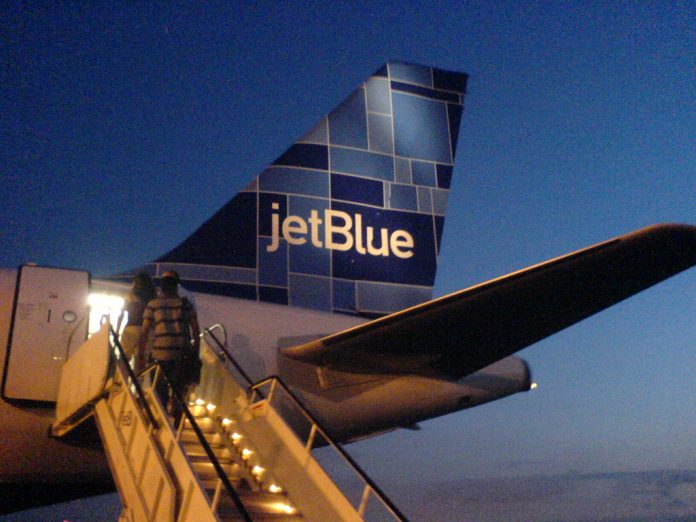New startups increase U.S. airline competition with lower prices.
Start-up ultra-low-cost carriers (ULCCs) Avelo and Breeze announced additional new routes in recent weeks, offering cost-conscious travelers new non-stop alternatives to legacy airlines.
On April 28, Avelo began its second year by announcing that its third base (after Burbank and New Haven) will be in Orlando (MCO). Avelo’s initial routes from Orlando will serve Charleston, SC, (CHS), Baltimore/Washington (BWI), and Wilmington, NC (ILM). By the end of this year, its plans include 10 destinations to be served from Orlando. Avelo also plans to consolidate its flight attendant and pilot training in Orlando.
As noted previously in this newsletter, Avports is leading a $100 million capital improvement program at New Haven (HVN), lengthening its runway and adding a modern passenger terminal. Avports has secured a 43-year lease for its public-private partnership to finance and build the improvements and operate the airport. As of this summer, Avelo will serve 14 destinations from New Haven.
Breeze Airways has also announced service expansions in recent weeks. Thanks to the range of its incoming Airbus A220-300s, it will begin transatlantic service from Westchester County Airport (HPN), just north of New York City. In September, Breeze will offer daily nonstop flights to Los Angeles (LAX) and Las Vegas (LAS) from HPN. Other destinations to be served from HPN are Charleston (CHS), Norfolk (ORF), and Jacksonville (JAX). Breeze also announced Orlando (MCO) as its thirtieth airport. And in mid-May, Breeze announced that it will serve Provo, UT, (PVU) starting in August, with five routes from there planned to be in operation by November. Destinations from Provo will include San Francisco (SFO), San Bernardino (SBD), Las Vegas (LAS), and HPN (in this case one-stop service).
Both Avelo and Breeze are following the classic ultra-low-cost carrier model of providing direct, non-stop service from under-served, smaller airports (HVN, HPN, PVU) to leisure and (to some extent) business destinations such as BWI, LAS, LAX, MCO, and SFO. This is the business model pioneered with great success by Allegiant, Frontier, and Spirit.
These latest developments bring us to the ongoing battle between JetBlue and Frontier to merge with Spirit. After Spirit rejected JetBlue’s unsolicited takeover proposal, JetBlue approached Spirit’s shareholders with a hostile all-cash $3.6 billion takeover offer. Spirit’s management has urged shareholders to reject that offer, arguing that the combination of JetBlue and Spirit would likely face extensive, costly antitrust challenges from the federal government. While that does seem to be likely, there’s a better reason to reject the offer.
Merging Spirit into JetBlue would convert the former Spirit from a ULCC to just a low-cost carrier, reducing the amount of ULCC competition and markedly changing the corporate culture of the Spirit component. By contrast, the original Frontier/Spirit merger would create an ultra-low-cost carrier powerhouse, offering robust competition with ULCCs Allegiant, Avelo, and Breeze. That expanded ULCC segment of the airline industry would be a more powerful competitive force keeping airfares affordable for air travelers across the board.
Originally published by Reason Foundation. Republished with permission.












[…] post U.S. Airline Competition Keeps Heating Up appeared first on Heartland Daily […]